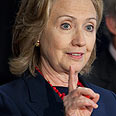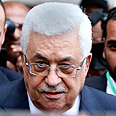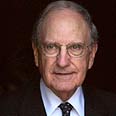



WASHINGTON – United States Secretary of State Hillary Clinton called Friday night on Israel and the Palestinians to begin discussing core issues, including borders, construction in the settlements and the status of Jerusalem.
Speaking at a conference at the Saban Center for Middle East Policy in Washington, Clinton noted that the United States will play an active role in the talks, and asked the sides to show more flexibility on core issues.
"You don't have to read secret diplomatic cables to know that we are meeting during a difficult period in the pursuit of peace in the Middle East," Clinton said, referring to the leaked cables on WikiLeaks.
Meanwhile, US special envoy to the Middle East George Mitchell is expected to visit Jerusalem and Ramallah in the upcoming days, and present the sides with proposals to bridge the differences and jumpstart negotiations.
“It is no secret that the parties have a long way to go and that they have not yet made the difficult decisions that peace requires,” Clinton said in Washington, adding, “It is time to grapple with the core issues of the conflict: On borders and security, settlements, water and refugees, and on Jerusalem itself.”
Sensitive issues
The secretary of state admitted that many issues on the agenda are highly sensitive, and reiterated that the US administration’s position on settlement construction has not and will not change.
"We do not accept the legitimacy of continued settlement activity. We believe their continued expansion is corrosive not only to peace efforts and the two-state solution, but to Israel's future itself," she said.
Commenting on the issue of Jerusalem, Clinton said it presented the greatest challenge, and that "there surely will be no peace" without an agreement on the capital.
"The parties should mutually agree on an outcome that realizes the aspirations of both parties for Jerusalem and safeguards its status for people around the world," she added.
During her speech, Clinton noted Prime Minister Benjamin Netanyahu and Palestinian President Mahmoud Abbas met on several occasions during the past few months – in Washington, Jerusalem and Sharm el-Sheikh.
The secretary of state also said she privately met the two leaders and held what she described as in depth conversations that highlighted the gaps that needed to be bridged.
"We will work to narrow the gaps, asking tough questions and expecting substantive answers. And, in the context of our private conversations with the parties, we will offer our own ideas and bridging proposals when appropriate," she said.
Earlier on Friday Clinton met with Opposition chairwoman Tzipi Livni and Defense Minister Ehud Barak in Washington, in an attempt to get a clear picture of the political situation in Israel as well as the likelihood Kadima will support the peace process.
Clinton also met with Palestinian chief negotiator Saeb Erekat and plans to meet with Prime Minister Salam Fayyad later.
- Follow Ynetnews on Facebook















